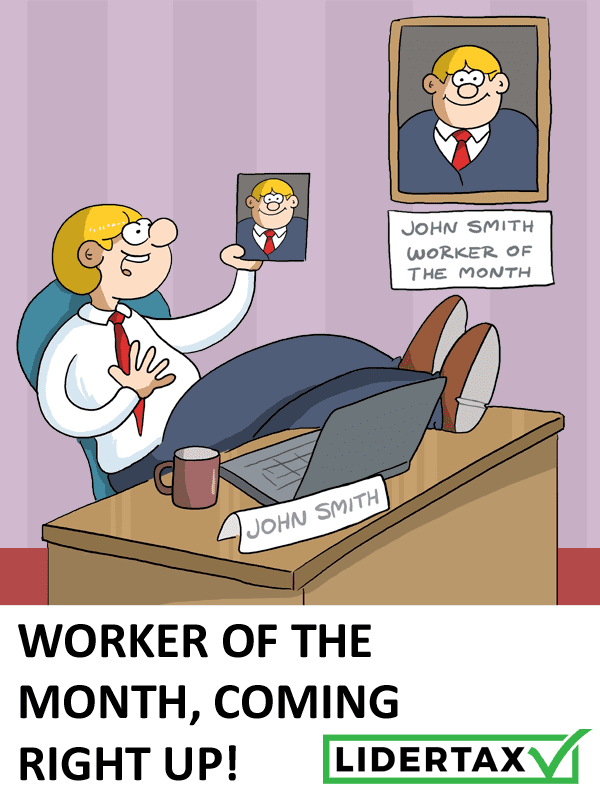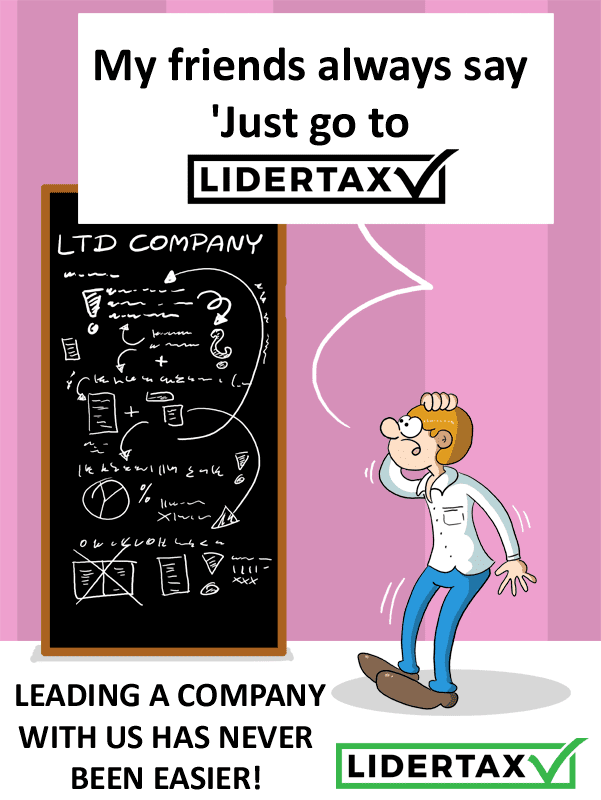
If you’re self-employed in the UK, there’s a lot to consider when it comes to tax-related matters. Self-employment means you’re liable for your self-assessment tax return and must maintain all financial records. That’s why it’s important to understand all the details involved to make the right decisions for your business.
Luckily, this detailed blog post is all you need to learn the most key things about being a sole trader, self-employment and its tax-related issues. So let’s get started:
Here’s What You SHOULD Know If You’re Self-Employed in the UK:
Working For Yourself Automatically Classifies You as a Sole Trader
You might be a self-employed business owner, but that doesn’t mean you’re exempt from tax obligations. In fact, if you own a business and run it as an individual, that business is classified as a sole trader by HMRC.
This means that you are the owner of the business. And you are responsible for signing contracts, dealing with suppliers and hiring employees. You’re basically, a one-person army.
If you are a sole Trader, you are responsible for paying tax on any income you earn and National Insurance Contributions.
However…You DO NEED to Register with HMRC
As a sole trader, you’re responsible for paying your own taxes. However, there are a few exceptions. In order to ensure that you’re following tax regulations, you must register with HMRC. Failure to do so can lead to fines and penalties for your business. Here are some common HMRC rules that require you to register:
- You need proof to show you’re self-employed. For instance, if you apply to open a bank account for your business and the bank requires employment status proof.
- You’ve gone over your trading allowance. This means earning over £1,000 as a self-employed person from 6 April to 5 April – a single tax year.
- You want to pay the NIC (National Insurance Contributions). If you want to qualify for government benefits like state pension, you must register.
Meeting any of these criteria would mean registering as a sole trader by 5 October of your 2nd business year. For instance, if you start working as a sole trader between April 2021 and April 2022, you must register before 5 October 2022.
Tip: Registering is easy and free as of now. So it’s better to register as a self employed / sole trader now if you plan to earn all or most of your income from your sole trading business. This is because you will sooner or later meet the three criteria mentioned above.
Not Registering Can Lead to Consequences
Remember that you may face penalties if you don’t register as a sole trader by 5 October. The penalties can start from 30% of the tax if HMRC rules your registration failure as ‘non-deliberate’. They can go up to 100% of your tax if your failure to register is found ‘concealed and deliberate.’ On top of this, you may also face a daily penalty and interest on your tax. However, you can save yourself from the penalty under the following conditions:
- You didn’t miss the deadline deliberately, meaning you had no idea of when to register or even register in the first place.
- You can tell them a valid reason for why you missed the registration deadline. This can happen in an event beyond your control, causing you to miss it.
- You didn’t register even after the deadline but told HMRC that you will do it as soon as possible after your ‘reasonable excuse’ ends.
As you can see, not registering as a sole trader when you fall under the criteria can lead to some serious penalties. Therefore, even if you miss the deadline, make sure to own up to your mistake as soon as possible or else you can get into trouble.
Registering As a Self-Employed is Super Easy and Most Popular:
Did you know that nearly 75% of British businesses were registered as sole traders in 2021? That makes up about 4.2 million UK businesses out of a total of 5.6 million self-employed in the UK. The best part is that you are a sole trader. You can register very quickly and easily.
All you need is to register for Self-Assessment, which will enable you to pay sole trader tax. It’s an HMRC system for income tax collection.
You can register online for Self Assessment.
Once done, HMRC will send you a 10-digit UTR (Unique Taxpayer Reference) and set up your Self Assessment online account.
If you have filled out online tax returns before, you’ll have re-register by filling out the CWF1 form. You will have to use your previous 10-digit UTR for this. Find your UTR here if you don’t already know yours.
Your Admin Costs Are Typically Lower Than Your Limited Counterparts
In contrast to companies with employees, sole traders typically don’t have any administrative costs like large office utility expenses, salaries, sick pay, holiday pay or pension contributions. This means that your profits are directly divided between the money you earn and your outgoings (such as taxes and NIC payments).
Moreover, setting up a limited company and operating it requires some more effort when filing taxes, as you may have to hire an accountant to see through the tax issues. As a sole trader, you can do it all by yourself using any online bookkeeping service. Your account costs and tax liabilities will be cheaper.
You Get to Keep Your Financial Data To Yourself
A sole trader can only authorise transactions in a company, and so you are the only one that has access to financial data, such as sales figures. Plus, even after registering with the HMRC, they are bound to keep the data confidential. This means they can only disclose your information in certain ways, for instance, if a court orders them to disclose it.
If we compare this privacy privilege with the Limited Company, your account and other business details will be available publicly as a limited company on the Companies House database. Anyone can download and look at them.
Self-Employment Has Its Perils
Self-employment means you are solely responsible for your business, so if something goes wrong, it is all on you. This means that any financial missteps can lead to bankruptcy or other serious problems.
Furthermore, if your business gets sued, you will directly be affected by it, which is not the case with a limited company, as the company gets sued, not the owners/CEOs.
For instance, as a limited company, if you go into a contract with a client for 5 million to build a luxury apartment, but things go south, and you are not able to deliver the project. Your limited company gets sued, not you, because you both are separate legal entities.
Some Industries Are NOT for Soler Traders / Self-Employed
If you work in high-risk industries, you need to go for a separate legal entity like a Limited Company that keeps you out of harm’s way in case of any liabilities. A sole trader is attached to her/his business, so they can get into a lot of legal and financial trouble if things go south. This typically happens in industries like financial services, the energy sector, healthcare etc., where stakes are high.
Moreover, if you are in a business that requires a lot of initial investment, like purchasing heavy equipment and machinery, you’d likely need a loan or investment. Banks and investors typically do not deal with sole traders as it’s a riskier structure.
You NEED to Maintain Your Records
As a sole trader, you’re responsible for your own taxes. This means that you need to maintain accurate records of your business transactions and finances. This will help you file your taxes correctly and make informed decisions about your business.
- Start by understanding the tax deductions that are available to sole traders.
- Next, create an effective accounting system that will help you track your finances and make informed business decisions. You can use online bookkeeping software like Xero or QuickBooks for this.
- Lastly, ensure you keep accurate and up-to-date business records that will help you prove your business transactions. These include all the receipts, utility bills, and invoices for any supplies or stocks you purchase.
- Make sure to have at least 5 years of incoming and outgoing transaction data after the self-assessment deadline as per HMRC.
With a little bit of effort, you’ll be on your way to filing taxes correctly and managing your business finances efficiently as a sole trader!
It’s Easy to Calculate Your Taxes
It’s fairly easy to work out your taxes when you are filling out your self-assessment. Here are the key elements of your tax bill:
- Income Tax: Your income tax will be according to the same rates as if you were working as an employee and getting a salary. However, instead of your taxes is calculated based on your income, they’ll be calculated on your net profit.
- Class 2 NIC: This will be £3.15/week, but it’s only levied on you if your annual profits are £6,725 or more for the 22/23 year.
- Class 4 NIC: This one applies to profits between £11,908 and £50,270 with a 10.25% rate, and if the profits go over £50,270, then it’s 3.25%.
Registering For VAT Becomes Necessary When You’re Raking BIG Money
As a self employed in the UK, you can earn up to £85,000 per year and not worry about paying VAT. However, if you start making big money and your yearly turnover exceeds this threshold, you will have to register for VAT.
You will charge customers VAT on the sales and pay it to the HMRC. In turn, you can reclaim the value-added tax you pay on items you purchase.
You Can Always Pivot to Limited Company:
Yes, this is true! Registering yourself as a sole trader now doesn’t mean you cannot get out and change your structure to a limited company. Once your business’s size and nature grow, your risk and the tax you pay as sole trader will do too. This is when you can set up a LTD company. However, you will have to ensure that someone else hasn’t registered the name of your sole trader business as a limited company. Otherwise, you will have to change the name to something that’s available.
Self-Employed – parting words:
If you are operating your business under self-employment for a long time, your main job is to be smart with your decisions. You should remember these factors as they can significantly impact your business performance and make or break your financial status in the end.
If you are unclear about your next step, whether to go for a sole trader or an LTD company, call us. The experts at Lidertax can help you make the best possible decision.




